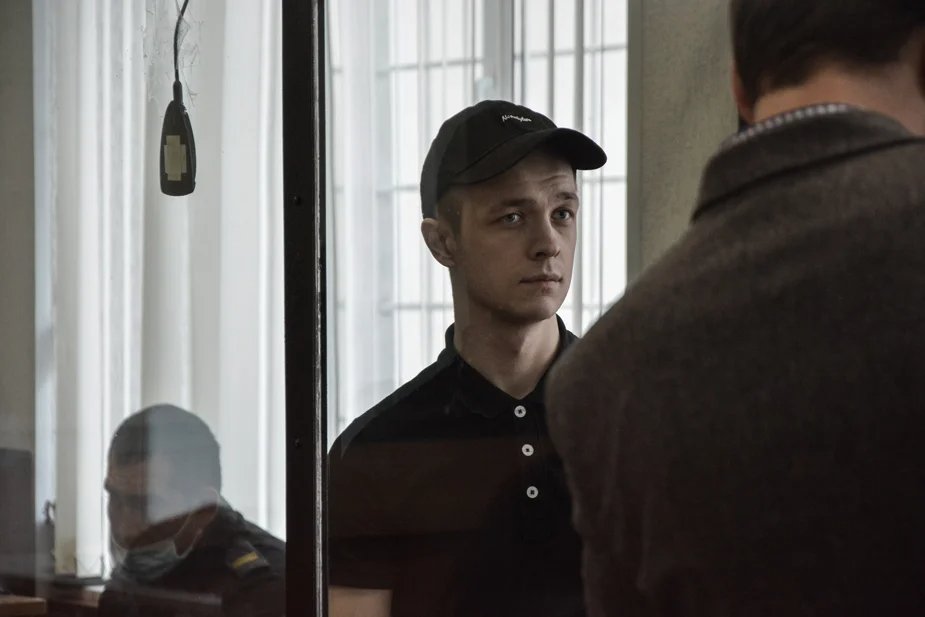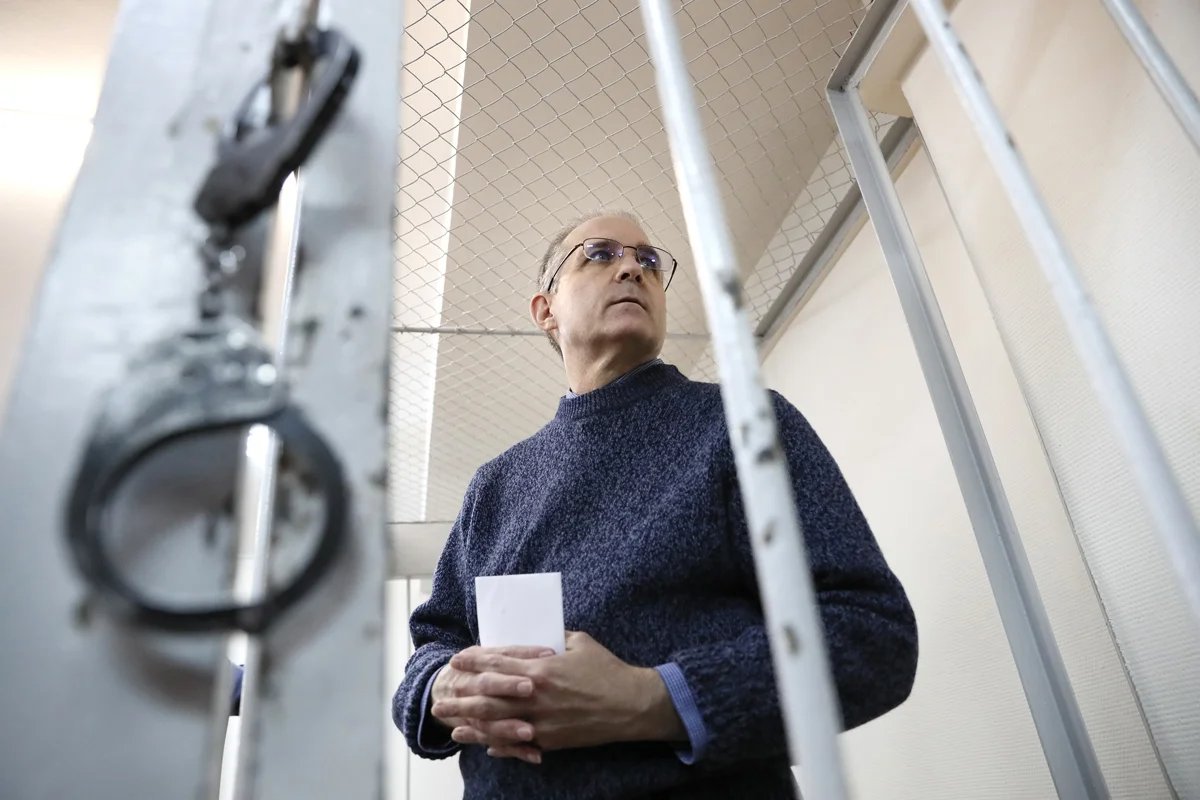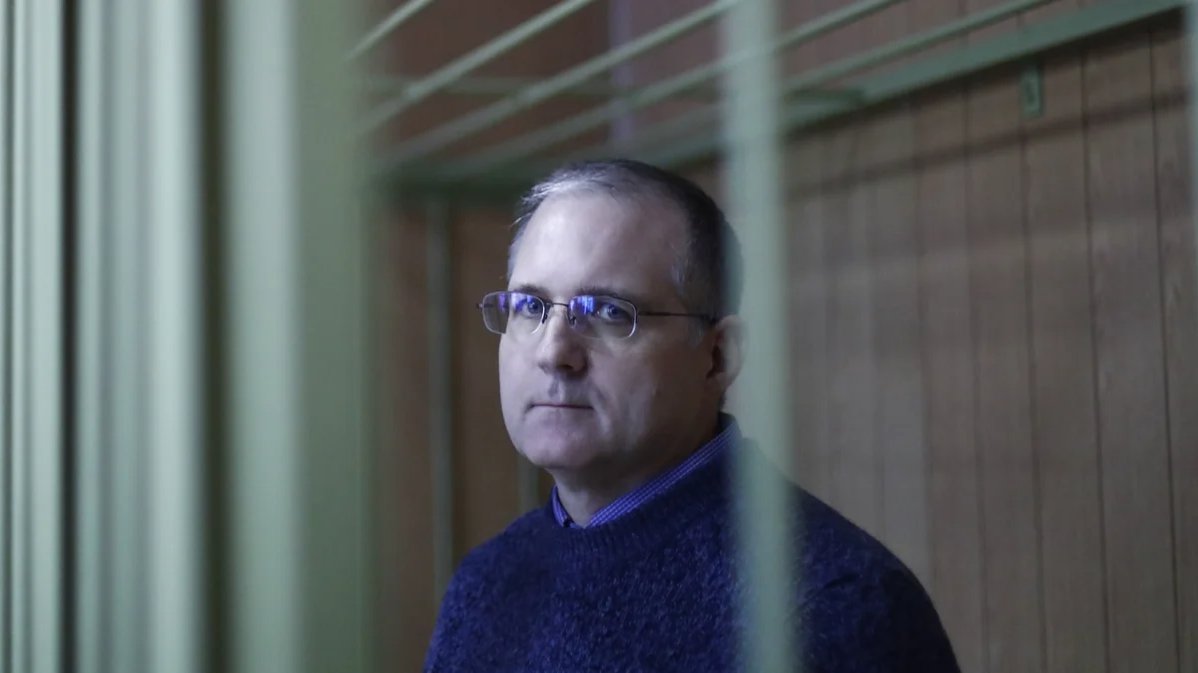This article was first published by Novaya Gazeta Kazakhstan.
Five years ago, former US Marine Paul Whelan went to Moscow on what was supposed to be a two-week vacation. He still hasn’t returned. Whelan was detained at his hotel in December 2018 and, after a flash drive containing secret materials was allegedly found among his belongings, he was sentenced to 16 years in prison on espionage charges.
Whelan has never admitted guilt, calling the entire situation a “political provocation”, and has spent the intervening years in a high-security prison in the western Russian republic of Mordovia. The US government has repeatedly attempted to exchange Whelan for Russian citizens jailed in the West, but so far without success.
Ilya Shakursky was also sentenced to 16 years in prison, though in his case in 2020 and for his alleged involvement with an anti-government anarchist organisation. As both men have been held in the same high-security prison, the pair have struck up a friendship. In a letter from jail written to Novaya Gazeta Kazakhstan, which we’re republishing here, Shakursky describes how Whelan appears to be coping with his imprisonment — and what his fellow inmates make of him.
For prisoners, who are always hungry for information, watching the news is a kind of ritual — like drinking water or eating breakfast. One day, a familiar face appears on the screen: a smiling foreigner in glasses. He stands in a courtroom, trying to explain something. The men watching the TV begin to chatter, laughing encouragingly at the TV. “It’s Paul! It’s Paul! Look, our American is on TV!”

Ilya Shakursky, 15 September 2020. Photo: 7x7
It feels as though our friend has become a reality TV star. Just this morning, we saw this person sitting across from us, eating chicken from an aluminium plate, and now here he is on a state TV! People the world over know about Paul, but it’s in our midst in the wilds of little-known Mordovia that he lives. That evening, Paul will return to the prison, and once the staff have completed all their formalities to ensure he didn’t escape, Paul will casually take a call from US Secretary of State Antony Blinken, who seems to call our Mordovian prison more often than he calls the Kremlin these days.
I first learned about Paul from an article in Novaya Gazeta. At that point, I was still in pretrial detention, and Paul had just been sentenced. Almost immediately, they started talking about an exchange, and it seemed Paul himself believed that an exchange would soon be arranged. It was as though he’d been sentenced for the very sake of being swapped, only for something to have gone horribly wrong…
Paul hates being called “the spy”. I understand that, because I also hate it when people call me a terrorist. It feels like they’re calling you guilty, even if you’ve been wrongly accused.
Paul and I first met around Christmas 2020. I arrived in the Mordovian penal colony, and people soon introduced me to the “American spy”. As Paul and I both had high-profile cases, we’d both been detained by the FSB and given harsh sentences as political prisoners, the other guys thought we’d find something in common. As it turned out, the language barrier was significant: I’m still in the early stages of learning English, and Paul has never learned Russian.
Still, he always understood some of what you were saying, and his comprehension has improved dramatically since I met him. Sometimes, he amuses the other prisoners with his vocabulary of Russian obscenities. In fact, some people believe that Paul speaks Russian perfectly and simply hides it because he’s a spy. They think it’s convenient for him to pretend he doesn’t know Russian, because most of the prison employees don’t know English. It doesn’t matter to me either way because I always try to speak in English with Paul.
Paul hates being called “the spy”. I understand that, because I also hate it when people call me a terrorist. It feels like they’re calling you guilty, even if you’ve been wrongly accused. When they aren’t calling him “the spy”, people call Paul “the American”. He actually has four citizenships — US, Canadian, British and Irish — but “the American” has a special ring to it, as though he’s an alien from another planet, naive and smiling. Alternatively, to some people he’s a devious and duplicitous foreigner. Nonetheless, everyone knows that the United States is attempting to engineer Paul’s release in an exchange.

Paul Whelan. Photo: Maxim Shipenkov / EPA-EFE
For a lot of people, the effort expended by the United States to get Paul home is proof in itself that he really must be a spy. Many of the inmates, as well as prison staff, can’t fathom why the president of a huge power would make so much fuss over the fate of an ordinary US citizen who found himself in a bad situation in another country. But not everyone thinks he’s a spy. And I think some of the negative attitudes toward Paul are due to envy.
Paul gets a lot of attention, he receives tons of letters, journalists try to contact him for interviews, and this irritates the rest of the inmates sometimes. As we all know that he could be released at any moment, it’s hard not to be jealous of Paul. When a whole country is pulling every possible string to get you home, then of course your situation is more hopeful than if you’re a hostage in your own country.
When you ask Paul when he thinks he’ll go home, he always answers with a smile: “Soon.” And he seriously seems to believe it. Seeing his confidence, you yourself begin to believe that before long we’ll be watching Paul on the TV again, this time as he gets off the plane, shakes hands with people in suits and hugs his family. Once I even bet someone a bottle of Coca-Cola that Paul would be exchanged within a year. Two swaps between Russia and the United States took place that year: Trevor Reed went home in exchange for Konstantin Yaroshenko, and Britney Griner went home in exchange for Viktor Bout. But Paul remained in Mordovia and I forfeited that bottle of Coke.
Prison leaves its mark on everyone, but I do think Paul is trying to maintain hope, telling himself that he’ll soon return home to his family, his beloved dog, and a delicious breakfast of fresh pancakes and maple syrup.
Speaking about his life in America, his life in freedom, Paul always uses the phrase “my world”. These words neatly sum up the differences between our cultures, countries, and mentalities. Like a naive child, Paul is sincerely perplexed when he encounters injustice and selfishness. It genuinely surprises him. He’s always asking, “Why is this happening?” And I don’t know how to explain it all in English. More than once I’ve seen Paul try to stop a fight between two inmates. When one inmate attempted to commit suicide, Paul was one of the first to intervene. He is very sensitive to people in need of help.
It’s nice to see that empathy he has for people, and to see that he believes in the sincerity and kindness of everyone else, too. Here, we often perceive foreigners to be naive and gullible, easy to trick or deceive. But Paul is far from blind to all that. He’s outraged when he feels that somebody is taking him for a fool, or is trying to take advantage of him. Nevertheless, he always remains sociable and full of goodwill.
He knows some words in Tajik and Mordovian, he greets everyone with a smile, and he chats with Russians, Dagestanis, Cubans, and Africans alike. At first glance, you might think Paul is an ascetic, because he uses all his free time to write and read. I guess this is how he returns to “his world”. He has a huge collection of books, one of which is an English translation of Tolstoy’s War and Peace. He also receives a large number of letters. Paul and I often run into each other at the censor to pick up our mail. Recently, not only did he show me that one of his letters was from England, but that it was written by one Julian Assange to boot.
We see Paul every day. He gets up early to exercise before taking his place at the sewing machine in the work area. When I ask how he’s doing, he tells me more and more frequently that he’s tired or bored. Here you really do get tired of everything: your surroundings, your routine, the prison walls. In recent days, Paul has been back in the headlines again as rumours swirl about him being exchanged, alongside Evan Gershkovich, for Vadim Krasikov.
But he appears to vest less and less hope in these headlines. He has already thought he was about to be sent home on several separate occasions, but things always fell through at the last minute. I think he smiles a little less these days; he used to stand out for his smile, but now he often appears detached and lost in thought. Prison leaves its mark on everyone, but I do think Paul is trying to maintain hope, telling himself that he’ll soon return home to his family, his beloved dog, and a delicious breakfast of fresh pancakes and maple syrup.
Today I’ll finish writing this letter, and tomorrow morning I’ll see Paul again for prison yard exercises. He’ll get there before everyone else, as he always does, and stand in his usual place by the fence. In the distance, beyond the tops of the pine trees, the first rays of dawn will be visible in the sky. The ice under our feet will be stained with sand and dirt.
Afterwards, a group of prisoners from Africa will gather around Paul, as they always do; they love to joke around with him, but they all speak so fast that I can’t understand what they’re saying. On the wall that faces us, there’s a surveillance camera and a faded banner that reads “Freedom is when nothing and nobody interferes with living honestly.” A strange phrase, considering that it’s prison that prevents us from living freely and honestly. Then a man’s voice will begin to dictate our exercise routine to us over the loudspeaker, as it does each morning.
Politicians continue their negotiations, and the days of each of our lives quietly go by. Every morning, a monotonous voice from the loudspeaker counts: one, two, three, four… So too the days, weeks, months of imprisonment pass.
“When will you go home, Paul?” I’ll ask him again.
“Soon!” the American will answer with a smile.
Maybe this time it really will be soon. I’m considering a rematch on that bet — although this time it’ll have to be lemonade as I can’t find Coca-Cola in the prison canteen anymore.

